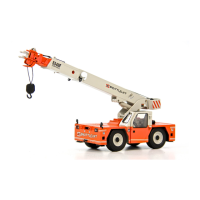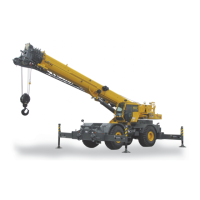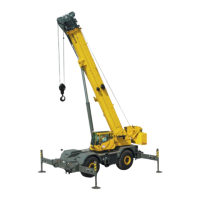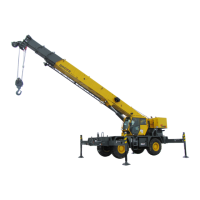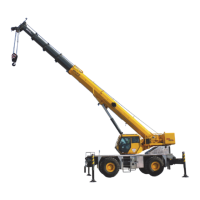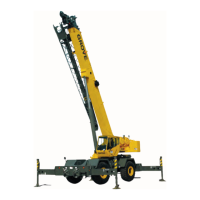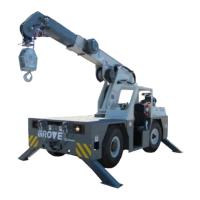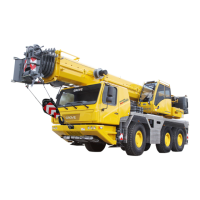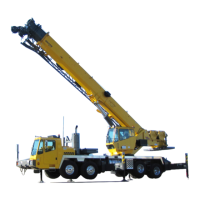STRUCTURALS 5540F/YB5515 SERVICE MANUAL
11-14
As wear in the sheaves increases, the groove for the wire rope gets smaller, NOT larger. Tracks in the sheaves are caused by
the wire rope, and the wire rope will continue to engage the tracks (for example; like a chain engaging a sprocket). A twist in
the wire rope or a small change of lay will prevent the wire rope from engaging the track in the sheave. The result will be a rapid
wear on the wire rope and on the sheave.
Wire Rope Lubrication
Lubricate the wire rope with a good grade of spray wire rope
lubricant or a light weight oil. A more frequent lubrication
(more than monthly) may be required due to operating
conditions and usage.
Proper lubrication of the wire rope is just as important as
lubrication of other components. The wire rope has many
moving parts. Initial lubrication will not last throughout the life
of the wire rope. Lubrication is essential to reduce wear and
inhibit corrosion of the wires.
After cleaning, apply a light weight oil that will penetrate into
the wire rope, or a light weight oil that has been preheated to
a temperature between 60° and 100° (18° and 36° C). Use a
brush or cloth to apply the oil.
Wire Rope Installation
Installation of Socket and Wedge
Always connect the socket so that the load is pulled on the
same line as the socket (See Figure 11-14).
Thoroughly clean the wire rope prior to application of the oil.
Use a wire brush and compressed air to remove all foreign
matter and old lubricant.
When installing the wedge, hit the wedge several times with
a hammer and wood block to make sure the wedge is fully
engaged with the socket. Install cable clamp on the loose
end of the wire rope as shown in Figure 11-14.
To properly seat the wedge, lift a load equal to the rated
capacity of the crane.
WARNING
To prevent personal injury from compressed air, always
wear safety glasses when using compressed air for
cleaning.
.
X = A MINIMUM OF 6 ROPE DIAMETERS, BUT NOT
LESS THAN 6 INCHES (152 MM).
a0025
Reference Only

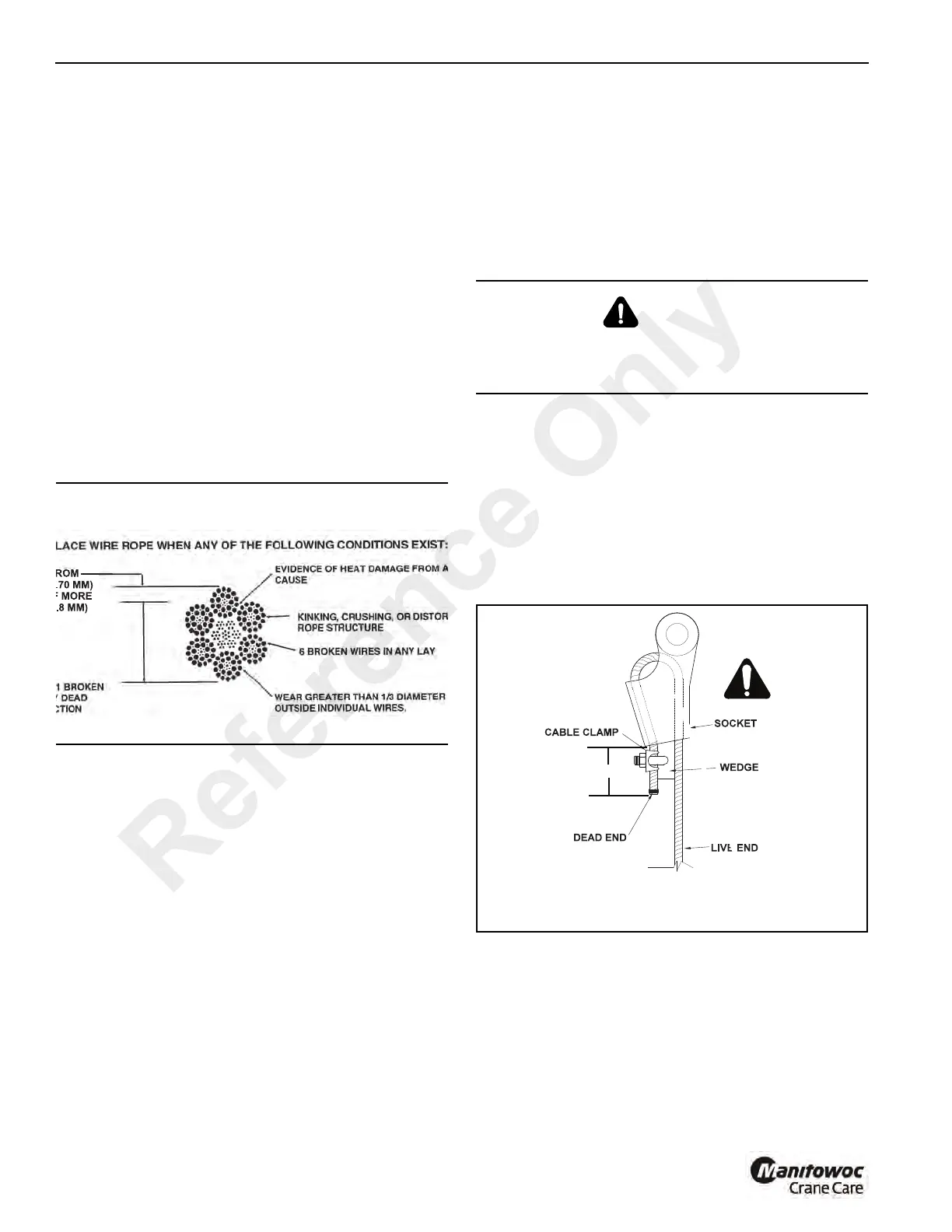